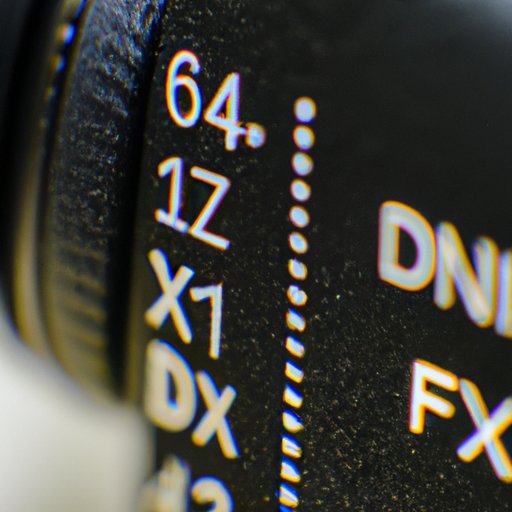Introduction
A full frame camera is a type of digital camera that uses a larger image sensor than other types of cameras. This allows it to capture more light and detail in each photograph, giving your images greater clarity and sharpness. It also gives you more control over the depth of field and aperture settings. By understanding the features and benefits of full frame cameras, you can decide if this type of camera is right for you.

Guide to Full Frame Camera Technology
Full frame cameras use a larger image sensor than most other types of digital cameras. This sensor is typically 36mm x 24mm, which is roughly equivalent to the size of a 35mm film negative. With a larger sensor, the camera is able to capture more information in each photo. This results in higher quality images with improved sharpness, color accuracy, and detail.
The image quality of a full frame camera is also improved by its ability to capture a wider dynamic range. This means that it can capture both the shadows and highlights of an image, providing greater flexibility when editing your photos. The camera’s larger sensor also allows you to use different lenses, such as wide-angle or telephoto, to get the desired effect.
Full frame cameras also have better autofocus capabilities. This allows you to quickly and accurately focus on your subject, even in low light conditions. Additionally, the larger sensors used in these cameras allow for faster shutter speeds, which is great for capturing fast-moving subjects.
How to Choose a Full Frame Camera
When choosing a full frame camera, it’s important to consider your needs and budget. Do you need a camera for professional photography, or just for everyday snapshots? Are you willing to invest in a higher-end model? Research different brands and models to find the one that best fits your needs and budget.
It’s also important to try before you buy. If possible, rent a few different cameras and take them out for a test run. This will give you an idea of how it feels in your hands, how easy it is to use, and how well it performs. This will help you decide if a full frame camera is the right choice for you.

Pros and Cons of Full Frame Cameras
There are both advantages and disadvantages to using a full frame camera. One of the biggest advantages is better low light performance. Because of its larger sensor, a full frame camera can capture more light, resulting in brighter, clearer images. Additionally, the larger sensor can also provide greater depth of field control, allowing you to create stunning images with shallow depth of field effects.
Another advantage of using a full frame camera is the higher resolution it provides. This means that you can print your images at larger sizes without losing any detail or quality. However, one of the biggest drawbacks of full frame cameras is the cost. They are typically more expensive than other types of cameras, and the lenses can be costly as well.
Finally, full frame cameras tend to be heavier than other types of cameras. This can be a problem if you plan to carry your camera around a lot or take it on vacation. However, many full frame cameras now come with lighter, more compact bodies, so this may not be an issue.

Full Frame Camera: An Overview of Features and Advantages
Full frame cameras offer a number of features and advantages that make them ideal for professional photographers. These include improved image quality, broadened perspective, creative control, and durability. Here’s a look at each of these features in more detail.
Improved image quality is one of the biggest benefits of using a full frame camera. The larger sensor captures more light, resulting in brighter, sharper images with greater detail and color accuracy. Additionally, the wider dynamic range gives you more control over the shadows and highlights in your photos.
Using a full frame camera also allows you to take advantage of a broader perspective. With a larger sensor, you can capture more of the scene in your images, which is great for landscapes and cityscapes. Plus, the camera’s increased depth of field control lets you blur out the background for stunning portraits.
Finally, full frame cameras offer more creative control. You can adjust the aperture and shutter speed to create different effects, and the camera’s autofocus capabilities let you quickly and accurately focus on your subject. Plus, many full frame cameras are built to last, making them ideal for professional use.
Conclusion
Full frame cameras offer many features and advantages that make them ideal for professional photographers. They provide improved image quality, a broader perspective, creative control, and durability. When selecting a full frame camera, consider your needs and budget, research different brands and models, and try before you buy. Understand the pros and cons of using a full frame camera, and decide if this type of camera is right for you.


